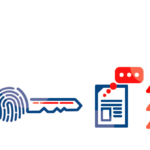This week, we read about positive and negative viewpoints on transformative journals, and the launch of a new open access research platform. We also hear about French support for Ukrainian research publishing during the ongoing war. We learn about how online research dissemination platforms must shift from piratic practices to legitimacy as their status within the research community grows. Finally, we listen to a podcast discussing free online courses for open science and the connection between open science and research integrity.
To read:
Spike in open access research published in Cambridge’s transformative journals via STM Publishing | 2-minute read
Of Cambridge University Press’ (CUP) more than 360 peer-reviewed journals, 239 are transformative journals that are transitioning to open access. This is part of CUP’s commitment to the open access publishing initiative Plan S, which began in 2021. The latest news is that the amount of research published open access by CUP has risen by almost 70% in 2021, exceeding its open access growth target for the year. CUP plans to transform the vast majority of research published in its journals to open access by 2025.
Do transformative agreements reinforce the status quo? via Frontiers Science News | 30-minute read
This white paper argues that transformative agreements are used as a tactic by publishers to maintain the status quo of paywalled access, instead of for their intended purpose of accelerating the transition to open access. These agreements are incorporated into the Plan S initiative for enhanced open access. However, the authors of this paper argue that they constitute a concession that has weakened the initiative’s founding open access mission by allowing journals to continue to paywall access to research as long as some open access content is also published. The authors conclude that the initiative, although well intentioned, needs to tackle the transformative model and insist on timelines, requirements and mandatory objectives for publishing open access.
Release the Kraken! via STM Publishing News | 5-minute read
Octopus – a new open research platform that aims to enable fast, free and fair publishing of open access research – was launched on Wednesday this week. Billed as a revolutionary platform for sharing research, Octopus will focus on the quality, rigour and specialism of research with easily accessible data, methods and analyses. The platform will also ensure that proper accreditation is given to individuals who contributed at all stages of the research. You can join the conversation and keep up to date with Octopus news and activities via this link.
French support for Ukrainian open access via The Committee for Open Science | 1-minute read
There are over 1000 academic journals published in Ukraine, and over 700 of these are open access. Owing to the ongoing war, several European organizations – including OPERAS, the Directory of Open Access Journals, and the Association of European University Presses – have collaborated to set up the Supporting Ukrainian Editorial Staff operation. This initiative aims to support and preserve scientific publishing in Ukraine during the current crisis. Joining this initiative is the French National Open Science Fund, which is contributing €16 500 to the campaign.
Moving from piracy to legitimacy via The Scholarly Kitchen | 2-minute read
In order to increase initial use of their platforms, many internet start-ups that focus on disseminating research infringe upon copyright distribution laws. However, once these businesses grow in scale, they must make the move away from ‘piracy’ to legitimate behaviour within the research community. This was the case for Scribd, which partnered with the intellectual property holders that it used to pirate, and Mendeley, which was bought out by publishers. This article highlights that a similar thing appears to be happening to the research sharing social network ResearchGate as it continues to grow as a major player in the research sharing market.
To listen to:
The relationship between research integrity and open science via Player FM | 60-minute listen
Presented by Jo Havemann, this Access 2 Perspectives podcast discusses the topics of research integrity and open science with Paola Masuzzo. Jo and Paola also talk about the future of the free online course platform for open science called the Open Science MOOC, as well as its incorporation into the Institute for Globally Distributed Open Research and Education (IGDORE). You can read more about Paola’s advocacy for open science on her blog.
Have you seen our recent commentary about user perspectives on plain language summaries? Read it here in Current Medical Research and Opinion.






